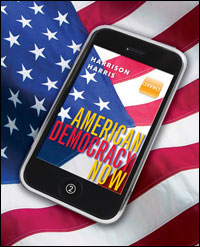1 A) stable. B) volatile. C) elitist. D) confusing. 2 A) military options. B) diplomacy. C) trade policies. D) All these answers are correct. 3 A) Iran B) Pakistan C) Afghanistan D) India 4 A) Iran had directly supported the 9/11 attack. B) the U.S. had concrete intelligence that Saddam Hussein was behind the 9/11 attack. C) Iraq was harboring weapons of mass destruction (WMDs). D) the governments of Afghanistan and Iraq had together carried out the 9/11 attack. 5 regime change in foreign policy circles?A) using diplomacy to convince foreign leaders to change their policies B) using sanctions and trade policies to force enemy leaders to step down C) forcing a foreign government to hold new elections D) ending the reign of an enemy nation's leaders through military action 6 A) The president plays the dominant role in shaping foreign policy. B) Congress plays the dominant role in shaping foreign policy. C) Congress and the president play equally important roles in shaping foreign policy. D) The president's role is slightly more influential than Congress's in shaping foreign policy. 7 A) the Central Intelligence Agency (CIA) B) the Federal Bureau of Investigation (FBI) C) the Department of State D) the Department of Defense 8 A) National Security Agency (NSA). B) Department of Homeland Security. C) Securities and Exchange Commission. D) Central Intelligence Agency (CIA). 9 A) The Department of State tends to take a long-term approach to issues of foreign policy, while the National Security Council focuses on more short-term objectives. B) The National Security Council tends to take a long-term approach to issues of foreign policy, while the Department of State focuses on more short-term objectives. C) The National Security Council tends to have more influence over policy making than does the Department of State. D) None of these answers is correct. 10 A) It is an independent agency of the federal government. B) Concerns about the clandestine nature of the agency's activities abroad led to increased congressional oversight during the 1970s. C) After the 9/11 attacks, critics of the CIA faulted its inability to anticipate and avert the attacks. D) All these answers are correct. 11 A) the Congress and the president. B) the stockholders of defense corporations and the media industry. C) the arms industry and the military rank and file members. D) collusion among the U.S. armed forces, the defense industry, and Congress. 12 A) focusing public attention on events in certain parts of the world B) investigating the implementation of U.S. foreign policy C) forcing a congressional vote on a particular policy agenda D) shaping public opinion through films, television programs, and other entertainment vehicles 13 A) minimal, because most Americans are not particularly interested in or well informed about foreign policy B) significant, because most Americans are very interested in and well-informed about foreign policy C) minimal, because foreign events often move too fast to mobilize public opinion D) significant, because many Americans choose candidates on the basis of their foreign policy positions 14 A) sought to guarantee that the U.S. would be intimately involved in foreign affairs. B) sought largely to remove the U.S. from international affairs. C) did not express an opinion about U.S. involvement in foreign affairs. D) did not address the issue of U.S. involvement in foreign affairs. 15 A) impressment. B) piracy. C) naval inferiority. D) All these answers are correct. 16 A) the Monroe Doctrine. B) manifest destiny. C) the Roosevelt Corollary. D) isolationism. 17 A) allow the U.S. to show off its naval power. B) improve trade flows. C) shorten the time necessary for boats to travel between the Atlantic and Pacific oceans. D) make the United States a dominant world power. 18 A) Peace can be achieved through a careful maintenance of the balance of power. B) Peace can be achieved if nations agree to collectively oppose any nation that attacks another nation. C) Security can only be achieved if nations go to war simultaneously, which would act as a collective deterrent. D) Security can only be achieved by a collective promise not to go to war. 19 A) a powerful isolationist movement that opposed intervention in a European war. B) the legacy of its failures in World War I. C) its lack of knowledge about the Holocaust. D) its economic weakness at the end of the Depression. 20 A) multilateral organizations. B) superpowers. C) colonization. D) genocide. 21 A) the Marshall Plan B) the North Atlantic Treaty Organization C) the North American Free Trade Agreement D) the United Nations 22 A) the Federal Reserve System and the World Bank. B) the World Bank and the International Monetary Fund. C) the World Trade Organization and the International Bank of Commerce. D) None of these answers is correct. 23 A) the balance of power theory B) containment C) brinkmanship D) the domino theory 24 A) détente. B) containment. C) brinkmanship. D) bilateralism. 25 A) Its rhetoric is markedly different from the policies of the Bush administration. B) Its actions are markedly different from the policies of the Bush administration. C) It has largely carried on the Bush administration's belief in the clash of civilizations thesis. D) It has maintained the Bush administration's strong rhetoric but toned down its militarist policies.





